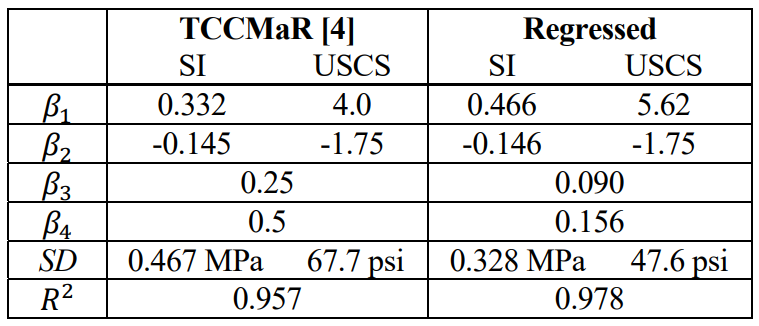Dillon, Patrick B.1 and Fonseca, Fernando S.2
1 Staff Engineer II, WDP & Associates Consulting Engineers, Inc., 335 Greenbrier Dr., Suite 205, Charlottesville, VA, 22901, USA, pdillon@wdpa.com
2 Associate Professor, Department of Civil and Environmental Engineering, Brigham Young University, Provo, UT, 84602, USA, fonseca@byu.edu
ABSTRACT
The development of the TMS and CSA masonry shear strength equations is not well documented in the masonry literature. The TMS and CSA shear strength equations are based on an empirical model developed by the Technical Coordinating Committee on Masonry Research (TCCMaR). The TCCMaR model was based on two models: one developed by Blondet et al. and another developed by Anderson and Priestley. An analysis of these models has been conducted to replicate the original studies so as to better understand the development of the models and their potential limitations, which is an important consideration in evaluating whether changes to the TMS or CSA shear strength equations are warranted. The analysis conducted and presented herein confirmed that least squares regression was not used to determine the optimum coefficient values for the two models, leading to errors being introduced into the TCCMaR model coefficients. In addition, the form of the TCCMaR model is not the most representative form for masonry shear strength, which increases the errors in the model predictions. Furthermore, the TCCMaR model was neither designed nor analyzed for use with partially grouted walls. The combination of these factors increases the error, which results in model predictions having larger variability and uncertainty than they need to, particularly for partially grouted walls. All of the implicit errors in the TCCMaR model were carried over into the TMS and CSA shear strength equations, and it is not possible to mitigate all of the errors in the TMS and CSA equations by simply inserting modification factors or changing their coefficient values. The authors recommend that a new masonry shear strength model be developed to replace the TMS and CSA models.
094



